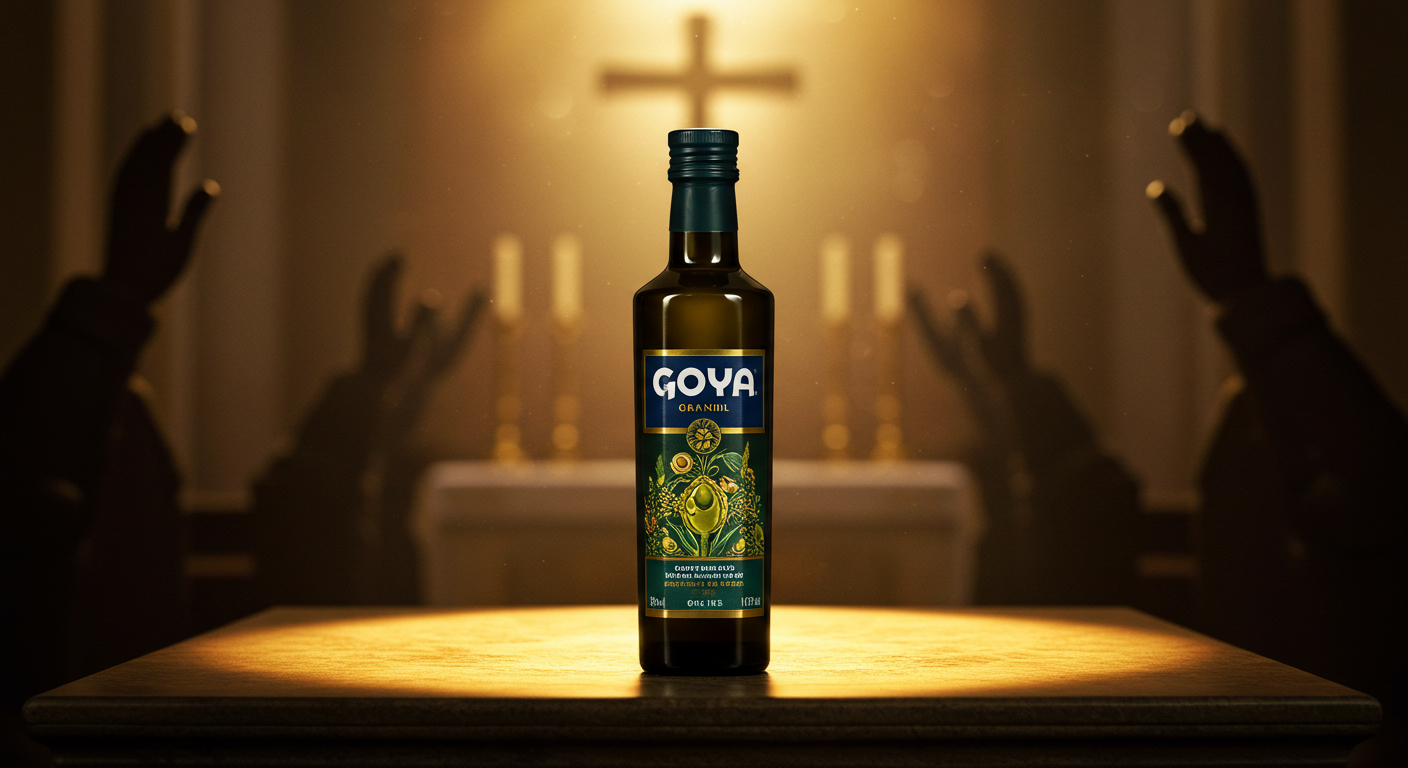Some items in the consumer goods industry use heavy advertising to stand out from the crowd. Some, like Goya Oil, became necessary in cultural areas with relative ease. The blue-and-goals Goya bottles are no longer used as cooking oil, but rather as the unofficial ‘anointing oil’ in many churches throughout Nigeria.
From Kitchen Staple to Spiritual Symbol
Goya Olive Oil, which was originally sold as a culinary product, has taken on an unexpected new life among Nigeria’s Christian community. When pastors ask for anointing oil, congregations of al faiths increasingly reach for Goya, which was become so established that alternatives often struggle to gain approval.
This was not the outcome of a well-funded religious effort. Instead, it grew organically from customer trust. Goya’s uniform packaging, foreign tradition, and perceived purity enabled it to transition from kitchen shelves to religious locations.
Why Churches Trust Goya
A lot of people who go to church think that the oil they use has spiritual meaning. If a product looks like it has been tampered with or isn’t uniform, it can’t be used in spiritual practices. Goya’s clear design, commitment to quality, and well-known name around the world made it a perfect fit. Over time, this idea turned into an unwritten monopoly in the category of anointing oil.
Lessons for Marketers
People who own brands and plan campaigns can learn from Goya Olive Oil’s popularity in churches:
Cultural relevance is more important than spending money on ads. Goya didn’t run any religion ads. Instead, people made it into a societal symbol by believing it to be real.
Building trust through consistency: Goya was the first choice for routines where trust was essential because of how it was packaged and how reliable it was.
Owning Ritual Spaces: The brand became relevant beyond price wars and store sales when it became linked to spiritual practice.
Beyond the Pulpit
Although churches are a boon for Goya Oil, the real victory lies in the brand’s adaptability. Another example of cultural co-creation that other marketers may learn from is the product’s transformation from a culinary tool into a spiritual one.
Goya subtly shown that in an age where businesses strive for awareness, the most potent positioning may at times arise when customers voluntarily declare a product as irreplaceable.
REGISTER FOR MARKETING EDGE STAKEHOLDERS SUMMIT







Comment
No comments found.